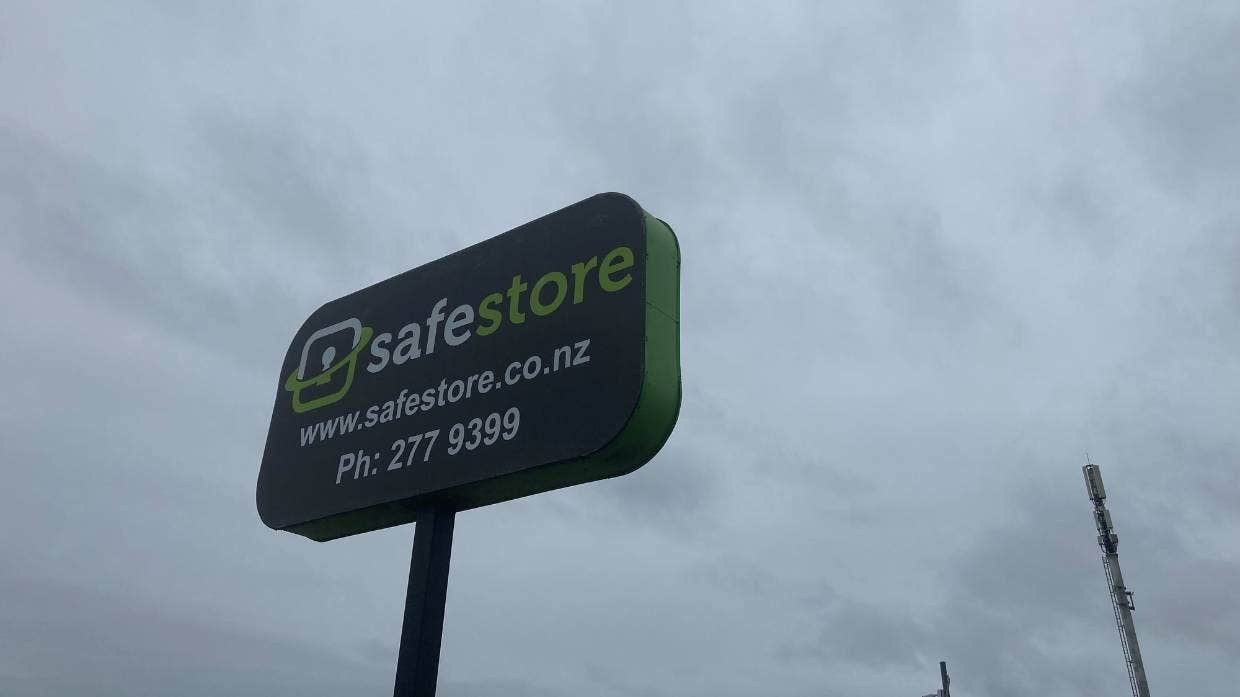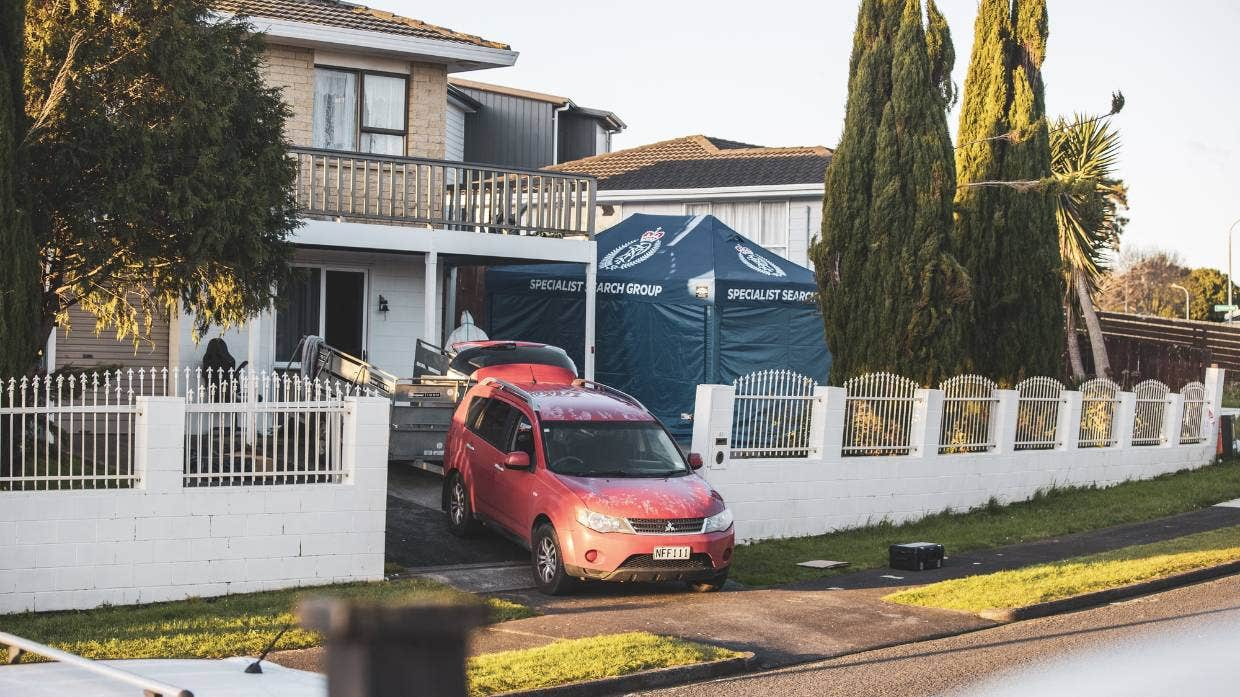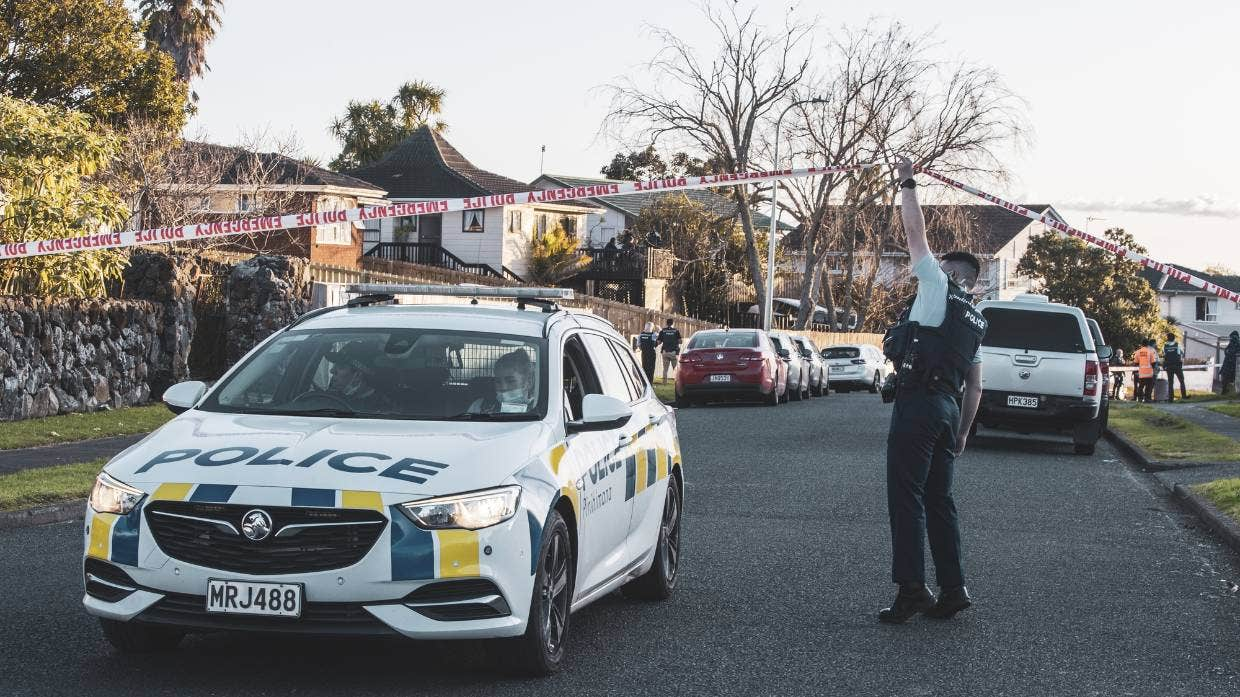You can't pick through the contents beforehand and the winner has to take everything away. These are the rules when it comes to storage units at auction.
An Auckland company that manages commercial and private storage units explains where the buck stops when a unit's contents are sold at auction.
Last week, a homicide investigation was launched in south Auckland after human remains were discovered at a property in Clendon Park.
READ MORE: Sydney personal trainer shot 'point blank' outside LA marijuana store
The remains were among the contents of a storage unit at Safe Store Papatoetoe, which had been sold as a job lot and taken to the buyers' home.
It's understood the residents went to the south Auckland storage unit and picked up a trailer-load of goods, taking them home without realising their grim nature.
Safe Store has a list of what is not allowed to be stored – prohibited items include containers with fuel or oil inside, explosives, firearms, perishable goods or anything deemed to be illegal – and unit renters sign a contract.
READ MORE: John Howard says Scott Morrison should keep his seat

According to Hannah Grant, New Zealand manager of Titan Containers – a storage company unrelated to last week's incident – storage units will undertake "checks and balances" with people wanting to hire a space, but what goes into the unit isn't usually monitored.
"We don't stand there and watch as [customers] take goods out or put them in, so it's up to the customer," she said.
"It sounds like, in this instance, the original storer either abandoned [the unit] or had fallen into arrears and it meant the facility took steps to clear the unit."
READ MORE: Explosions rock Crimea in suspected Ukrainian attack

Putting a storage unit's contents up for auction is a lengthy process, according to Grant – it often involves lawyers and making a reasonable effort to resolve the issue with the former owner.
If there are problems contacting the unit's owner, the process could take up to six months.
Once it's decided a unit's contents will be disposed of, the storage unit company would usually determine their value, Grant said.
"Most of the time it's junk and we pay for someone to take it away."
If a unit is thought to contain items of significant value, a storage company might hire an independent assessor to determine the worth.

When a unit's contents are auctioned, buyers aren't given much to go on. Grant said her company will only take photos of the unit and put them onto online sites like Trade Me.
Some auctions are held in person, but prospective buyers are only allowed to peer into the space, not rummage through the items.
"We're not looking to make a profit off people's stuff. We want the items gone, so we have more space to rent out," she said.
Grant pointed out when a unit is sold for auction, the first portion of money allocated will be used to pay off any outstanding debt on the unit.
Any profit from the auction has to be returned to the initial client.
When asked if the person renting the unit where human remains were stored could have made money from the auction, Grant said: "It's an unusual circumstance and any police investigation would halt that process."
Grant also clarified responsibility when a unit is sold, saying the buyer takes full responsibility for the unit's contents – and has to take it all away.
"The sale is on the agreement the buyer takes everything. The facility's main goal is to get back a storage space to rent it," she said.
"You can't pick what you want and don't want."
A director of Safe Store Limited, who didn't want to be named, confirmed the company was co-operating with the police investigation after the remains were taken from its Papatoetoe location.
"We won't say anything because it is under police investigation and we are co-operating with police," they said.
A family member at the buyer's property said on Monday morning they were receiving victim support.
This story first appeared on Stuff and is republished here with permission.
